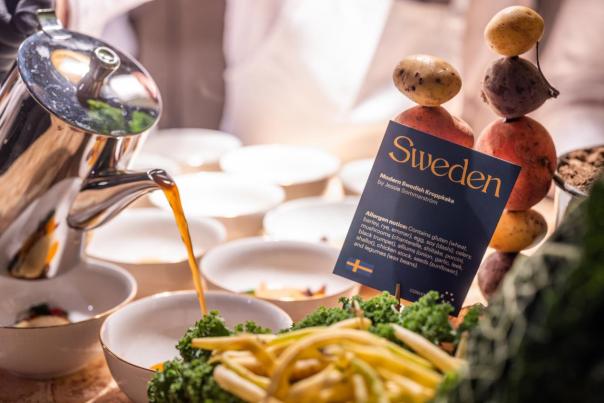
The latest edition of the EAT-Lancet report – a global reference in sustainable food systems – was unveiled on 3rd October, during the EAT Stockholm Food Forum 2025. By actively participating in the Forum’s discussions and in the preparation of the dinner, Sodexo proved that sustainable and delicious food was achievable.
The report shows that ‘transforming’ diets worldwide could prevent nearly 15 million premature deaths each year, while keeping food systems within planet’s environmental limits and reducing greenhouse gas emissions by more than half.
Sodexo has already turned many of the EAT-Lancet Report’s key recommendations into action, focusing in particular on two priorities:
- Promoting sustainable eating, by developing low-carbon meals centered on plant-based proteins, vegetables and fruits, with a commitment to reach 70% low-carbon main dishes by 2030. With WWF’s guidance, Sodexo defines low-carbon meals as those whose production generates 0.9 kg of CO₂e or less.
- Reducing food waste, through the WasteWatch program, which has enabled Sodexo to cut waste by 15% to nearly 50% in less than five years.
Serving 80 million consumers every day, Sodexo acts at scale to reconcile pleasure, health and respect for the environment, contributing to the transition toward more sustainable food systems.
Mouna Daoudi, chief sustainability officer at Sodexo and chief executive of Stop Hunger, said: “Food transformation cannot be decreed. It is built day after day, with courage and determination. At Sodexo, every meal is an opportunity to take concrete action for the health of people and the planet. A solution that works in one country may not work in another — we must adapt.”
Looking ahead, the upcoming launch of Better Tomorrow 2028, Sodexo’s new sustainability roadmap, will mark another milestone in the Group’s journey. It will enable Sodexo to further amplify its positive contribution toward building healthier, more sustainable and inclusive food systems.